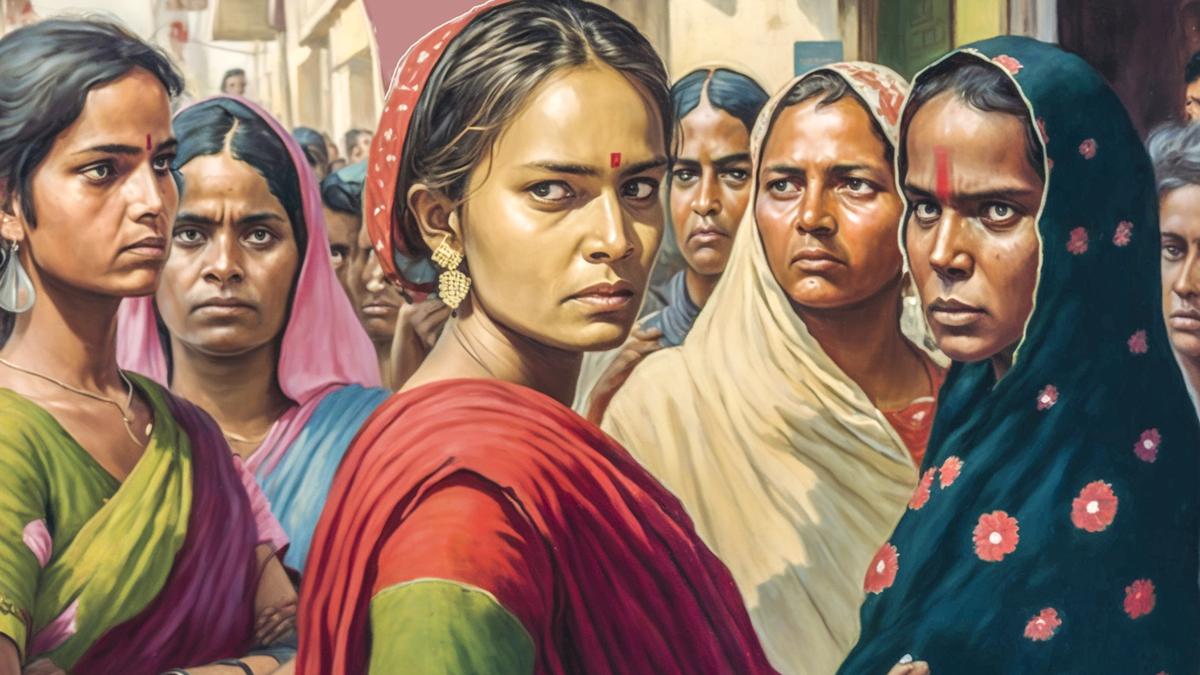News Highlight
The women’s reservation Bill cannot wait any longer.
Key Takeaway
- Even though women have been cracking the patriarchal glass barrier in every area, politics is where women have the most difficulty finding a place.
- Although India achieved suffrage early, women continue to face significant barriers to political participation and do not have the right to govern.
- It is depressing to see that even 75 years after independence, Parliament still needs to gain significant representation from half of the population, with women holding only 14% of the seats.
- It is time to recognise women’s systematic exclusion from politics and demand action to establish a more fair political scene.
Women’s Reservation Bill (WRB)
- About
- The Constitution 108th Amendment Bill, 2008 proposes reserving one-third (33%) of all seats for women in the Lok Sabha and state legislative assemblies.
- Reserved state or union territory seats may be assigned to various districts through rotation.
- Seat reservations for women will be phased out 15 years following the passage of this Amendment Act.
- Arguments Against the Bill
- Women, unlike a caste group, are not a homogeneous community.
- As a result, the same justifications used to justify caste-based reservations cannot be used to justify reservations for women.
- Some people argue that reserving seats for women contradicts the Constitution’s promise of equality.
- They argue that women will not compete on merit if a reserve exists, perhaps lowering their social standing.
- Arguments in Favour of the Bill
- Because political parties are inherently patriarchal, affirmative action is required to improve the status of women.
- Women continue to be under-represented in Parliament and reservations.
- It will ensure that women constitute a powerful lobby to fight for sometimes overlooked problems.
- More women in decision-making must address the;
- The high percentage of crimes against women
- Low female labour-force participation
- Poor nutrition
- Skewed sex ratio.
Why did the parliament fail to pass the WRB?
- Heated debates and sexist taunts
- The WRB has witnessed numerous heated disagreements and misogyny.
- Quota within quota
- The 1996 committee suggested reserve for OBC women inside Bill’s third category for women.
- This need, however, was never met.
- As a result, opponents have claimed that the WRB will not assist their women.
- Lack of political ability
- Only the Biju Janata Dal (BJD) of Odisha and the Trinamool Congress (TMC) of West Bengal have reserved seats for female election candidates.
- Diverts attention
- Opponents argue that the WRB diverts focus from greater electoral reform issues, such as political criminalisation and intra-party democracy.
Benefits of high Representation of Women in the Legislature
- Focus on Gender issues
- According to UN Women, more women in parliament contribute more attention to women’s issues.
- This can ensure an adequate policy response to gender issues and the implementation of women-sensitive policies.
- Gender Equality
- Political engagement by women is a vital requirement for gender equality and authentic democracy.
- It can assist in establishing public inquiries into women’s issues.
- As well as to use the findings to place them on government agendas and within legislative programmes.
- Accountability
- It promotes women’s direct participation in public decision-making and ensures more accountability for women.
Government Efforts
- Reservation for Women in Panchayati Raj Institutions
- Article 243D of the Constitution ensures women’s involvement in Panchayati Raj Institutions by mandating a one-third reservation for women.
- It is out of the total number of seats to be filled by direct election and the number of Panchayat chairpersons.
- Parliamentary Committee on Empowerment of Women
- The Committee on Women’s Empowerment was established for the first time during the 11th Lok Sabha of the Parliament in 1997 to improve the position of women.
- Members of the Committee are supposed to collaborate for women’s empowerment regardless of political affiliation.

Conclusion
- Increasing women’s legislative representation can significantly impact achieving gender-inclusive growth.
- It is time for political parties to put aside their differences and work together to increase women’s political involvement.
- Certain political parties have begun to field more female candidates.
- Yet, such methods must be institutionalised to be more effective.
- Furthermore, this will secure actual female empowerment.
Pic Courtesy: The Hindu
Content Source: The Hindu



